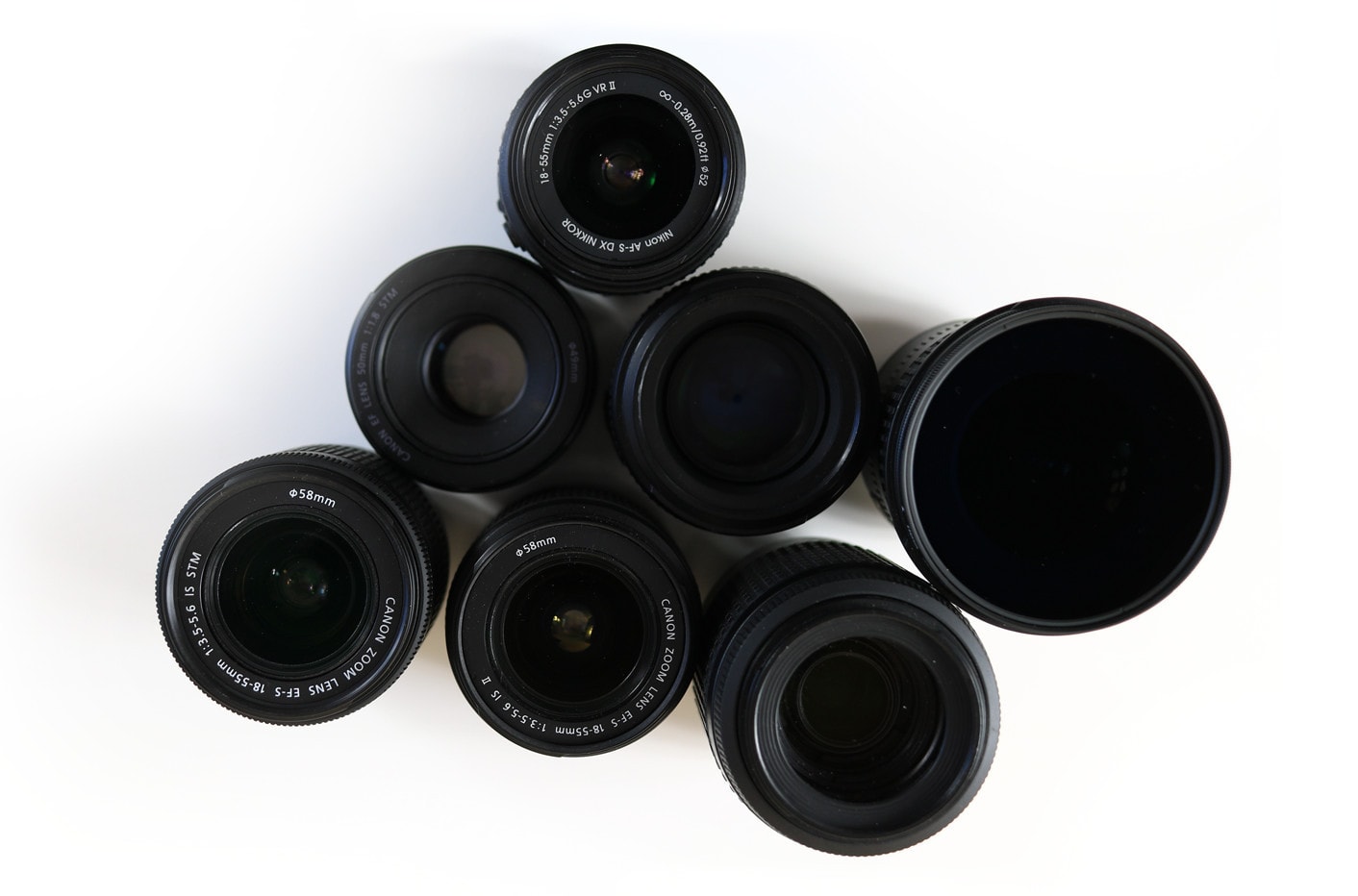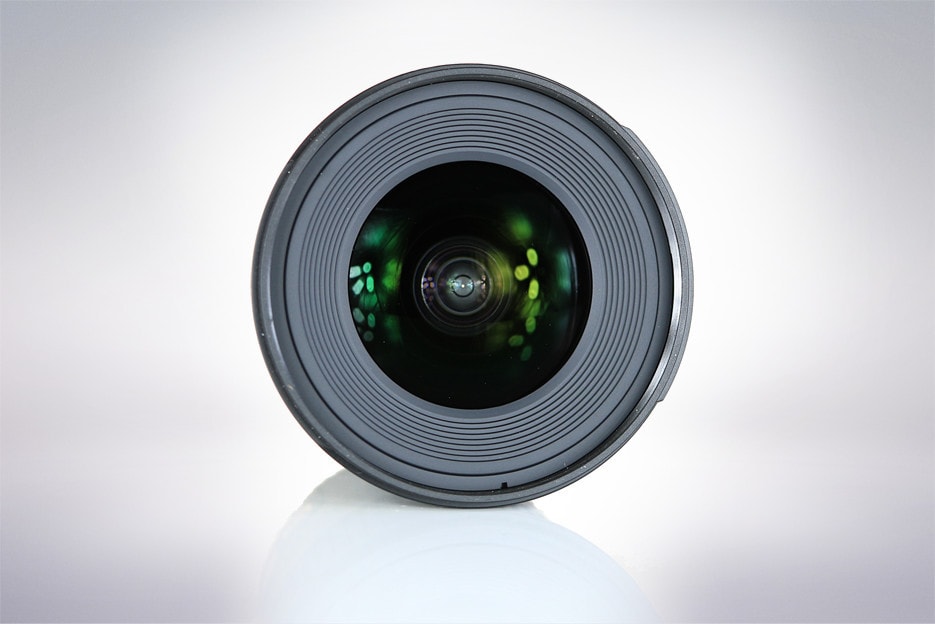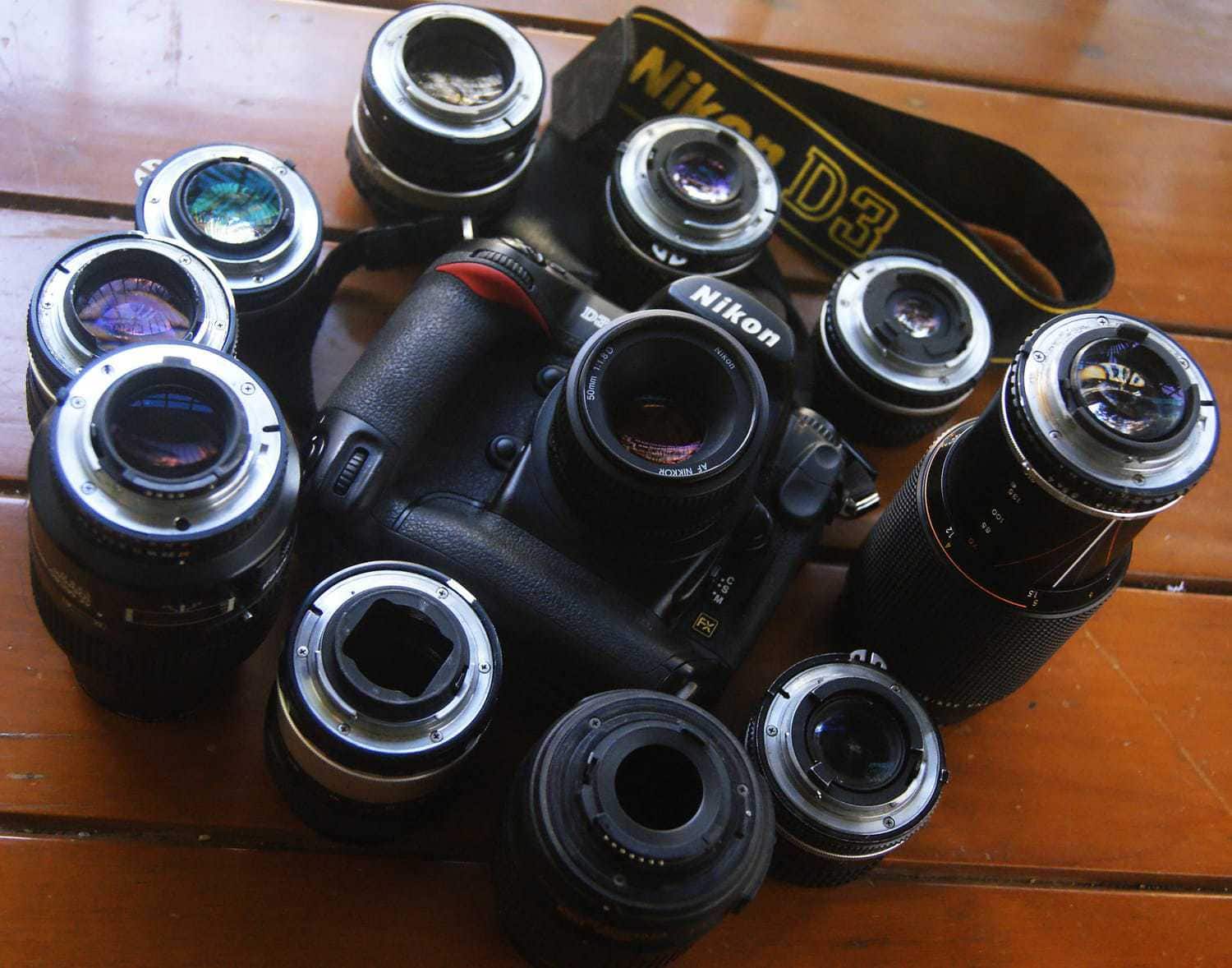Today I explain why I don't like off-road lenses. If you already own one of these lenses, please don't feel offended ? Off-road lenses are not that horrible, they have their audience and their use, I just don't like them personally. Today I explain why. If you were thinking of getting an off-road lens, you might be interested in reading this first ?
WHAT IS AN OFF-ROAD LENS?
To begin with, let's define what an SUV is. This is what is called, in the world of objectives, those that have a very, very wide focal length range. You already know that each objective has a certain focal length, there are short focal length objectives, for example 18mm (wide angle), there are long ones, such as 200mm, that allow you to zoom, and there are those that cover a whole range of focal lengths, allowing you to use them on both 18mm and 200mm, for example, with all focal lengths in between.
It is an "all-rounder" due to the fact that it allows you to shoot both in the field of short and long focal lengths.
WHAT IS AN OFF-ROAD LENS FOR?
« What goal do I buy? » must be the second question I receive the most from blog readers, after « What camera should I buy? ", which was already answered here .
On the market today, the offer in terms of objectives and lenses is immense. But this abundance of options, something that was meant to be a bonus, can sometimes feel overwhelming. With so many options, the choice is difficult. It's as if there were a thousand dishes on a restaurant menu, you wouldn't even know where to start. So many photographers end up opting for a lens that is supposed to allow them, in theory, to enjoy all the options at once. The SUV. A kind of target tasting menu. So one of the most frequent uses or advantages of an all-rounder is precisely not having to give up a range of focal lengths. Where other photographers would buy 2-3 lenses, each with a specific focal length,

An SUV also serves you, in theory, to save space and weight in the backpack when you go hiking. Other photographers will carry several heavy lenses, plus all the effort and risk that comes with turning the camera off and on, attaching one lens and unattaching another. You, on the other hand, stand there with your SUV and go light. What do you have a landscape in front of you? You quickly switch to a short focal length (18mm for example). What does a bird put in front of you? You quickly switch to 200mm without having to turn off the camera or uncouple the lens.
An SUV is, in appearance, all advantages.
WHY DON'T I LIKE OFF-ROAD TARGETS?
Have you noticed how many times I have used the expression "in theory" and "supposedly" in the text so far? And it is that I see it that way, everything is beautiful but only in theory. In practice, an SUV is far from making you the best photographer. Again, I stress that this is a very personal and subjective opinion, this is not an exact science.
Here are my reasons:
1) The greater the range, the worse the optics:The optics, the lens, the glass, play a fundamental role in the quality of the photography we take. Not all lenses offer the same optical results. The optical quality of a lens depends on several elements, one of which is the focal length for which the lens was designed. Normally the objectives with fixed focal lengths, that is, those that do not allow you to play with various focal lengths, have a certain focal length and you can only use that one, for example a 50mm or a 35mm, these objectives being designed to work EXCLUSIVELY with that focal length, manufacturers find it much easier to provide them with a very high optical quality, since the crystals inside are combined to ALWAYS work under the same focal length.
Lenses made to work with more than one focal length are versatile, they do give you the freedom to shoot at 18, 50 or 200mm if you want, but of course, to offer you that freedom they do so at the expense of optical quality. I am not saying that they give horrible results, because otherwise they would not be sold, their acceptable results are, but only that, they remain acceptable. They are not even half the optical quality that a fixed focal length lens can offer you.
So, the longer the focal length range of a lens, the worse its optics will be.
2) All-rounders let in less light: In general, all-rounders tend to have a relatively small maximum aperture. Maybe f/3.5 at best. In a fixed focal length lens, a 50mm for example, it is normal to find much more generous diaphragm openings, we plant ourselves directly at f/1.8 and f/1.4 without problem. Which affects huge amounts of light that will give us as a photographer much more flexibility to capture that photograph.
A detail is missing. In the all-rounder I said before that in the best of cases we would get an aperture of f/3.5 (it's just an example), what I didn't say is that we have those f/3.5 only at the smallest focal length of the lens, but at As we go up in the range of focal lengths of that objective, those f/3.5 are disappearing, giving way to much smaller apertures (worse light, darker photos, more movement and blur, etc.)
Let's see it with an example: An 18-250mm f/3.5 lens will normally give us that f/3.5 aperture only when we use it at 18mm. By the time we go up to the other end of the focal length, 250mm, we will see that the maximum aperture also changes until it reaches f/6.3. Shooting at 250mm with an aperture of f/6.3 is really poor : as I explained before, much less light enters in these conditions, with all the complications that this entails for the photographer to stabilize the image and achieve a level of sharpness and exposure. Right.

3) You may not need an SUV: It is typical that at the beginning of our hobby for photography we want to hoard all kinds of photos as photographers. That is usually the moment when we think we need an all-terrain lens. The truth is that as we progress as photographers, our taste and photographic style are defined, as well as the type of photos/subjects we like to photograph. Most of us photographers end up becoming fond of a certain type of photos. There are landscapers, portraitists, macro lovers, etc. That does not mean that we do not like to take other types of photos, most of us like to take more than one type of photos, for example I love portraits and landscapesmainly. But I mean that not all of us like to photograph absolutely everything and with absolute regularity.
In other words, you probably don't need to shoot at all focal lengths between 18 and 300mm. You will probably end up shooting especially at 18mm if you are a fan of landscapes, or 200-300mm if you are more into birds and animals. Or maybe portraits are your thing and you end up shooting almost exclusively in 50mm.
In the end, most photographers get by just fine with one lens or at most a couple. In my case, I carry a 50mm lens in my backpack (for me, the king of lenses ) and a wide angle specialized in landscape photography. Point. I don't need to shoot at 200 or 600mm, why would I want an SUV? Is it cumbersome to switch from one lens to the other? No. Keep in mind that I am not switching targets between shots. After half an hour of landscape photos, can I end up getting tired and wanting to play with my 2-year-old son, taking some portraits of him? Yes, there I would change the objective, but I would not change it again immediately after a minute, but after a while.
I want to tell you that this change from one objective to another is something that you will do occasionally and punctually. There are Sundays when I go out there with my camera and backpack and maybe I don't change the lens during the whole session. Do not think that the objective is changed before and after each shot.
4) All-rounders block your creativity: With a telephoto lens you frame and shoot, if you don't like the photo, even if it has a solution by playing with the composition or working on other aspects of the photo, your mind will always make you go to the easiest, change the focal length. So you shoot 18mm and look at the result, you're not convinced and all you do is switch to 30mm and shoot, then 100, 200 and 300mm. You see that no photo is worth it and you end up leaving it and looking for another reason to photograph. It is the laziness that causes the SUV.
When you have a 35mm lens attached and you want to photograph something, if you don't like the photo, not being able to change the focal length, you repeat the photo but changing focus, modifying perspective, moving yourself towards another angle. You work as a photographer. You put your brain to work. In short, fixed focal length lenses stimulate your creativity and help you put your more "photographer" side into operation.
OUT TELEPHOTO. WHAT IS THE ALTERNATIVE?
Have I convinced you? Once you know more or less what kind of photos you like to take, you have a huge range of options at your fingertips. I summarize them in this article with my most recommended reflex lenses .
Remember that half the beauty of a photo lies in the lens with which it was taken. Choose your next lens with care and care.


